No products in the cart.
Advocacy, Filipino, Filipino Community, OFW, OFW Advocacy
Leadership Interview: 25 Insights on How to Be a Great Leader—Serve and Inspire by Oliver Tupaz Diong
Leader Interview on HOW TO BE A GREAT LEADER: Serve and Inspire
by Oliver Tupaz Diong
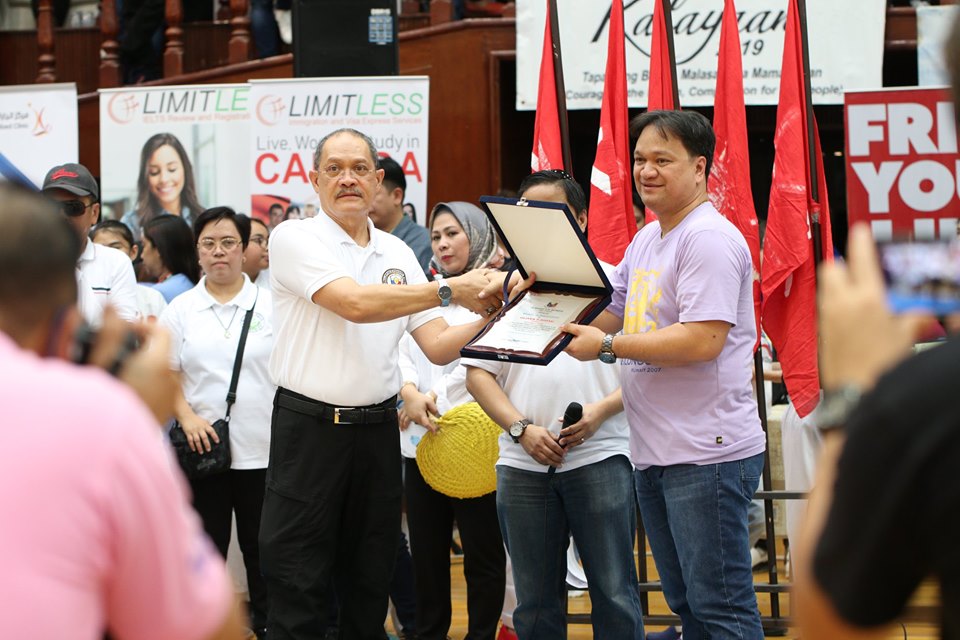
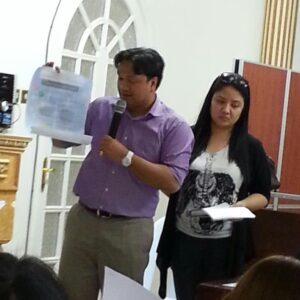
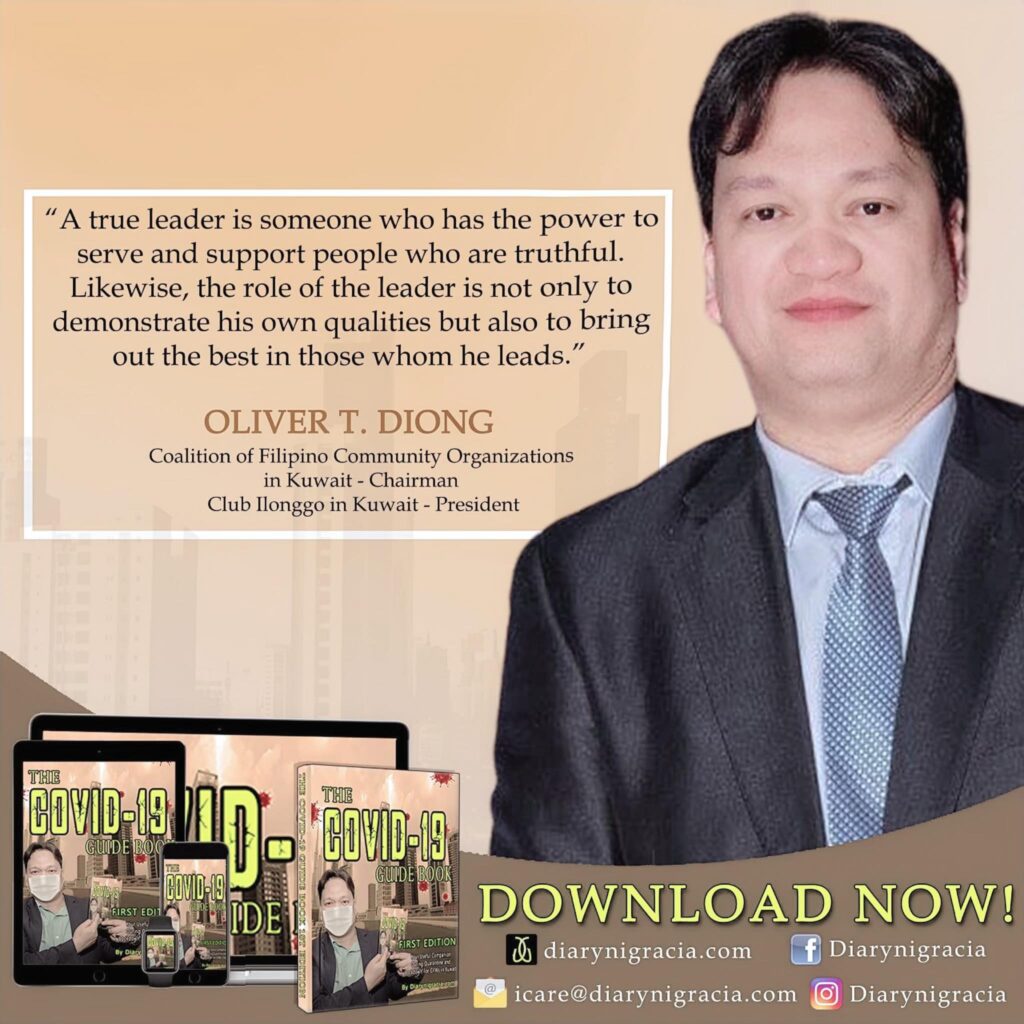
Leader Interview on HOW TO BE A GREAT LEADER: Serve and Inspire by Oliver Tupaz Diong
Effective leadership is not just about giving orders or seeking personal success; it’s about inspiring others, serving the greater good, and guiding a team toward a common goal. In this exclusive interview, we explore the insights and leadership philosophies of Mr. Oliver Tupaz Diong, Chairman of the Coalition of Filipino Community Organizations (FILCOM) in Kuwait and President of Ilonggo in Kuwait. Through his journey and experiences, Diong sheds light on what it truly means to be a leader who serves and inspires.
Understanding Leadership Through Experience
Born on October 1, 1976, in Iloilo, Philippines, Mr. Diong has built a reputation as a respected leader in the Filipino community in Kuwait. For more than a decade, he has served in various leadership roles, including his current positions as Chairman of FILCOM and President of Ilonggo in Kuwait. His story is one of service, passion, and a deep commitment to improving the lives of his fellow Overseas Filipino Workers (OFWs).
Throughout his career, Diong has been guided by a leadership philosophy that centers on service to others. His belief is that leadership should not be about the leader’s personal gain or glory but should be rooted in the desire to serve the community and uplift others. This approach has earned him recognition and respect among his peers and those he leads.
He became the Cover of my book
1. Tell me about the hardest decision you’ve ever made as a leader. How did you decide which course of action was best?
Making a good decision in some challenging situations is quite uneasy; you have to weigh the situation and find the most beneficial to the group. The best action I made was to consult fellow leaders or officers and get their opinions and suggestions until we arrived at a win-win solution.
For Diong, leadership is about more than just achieving personal success—it is about bringing out the best in others. He emphasizes the importance of being a leader who fosters collaboration and values the input of everyone in the group.
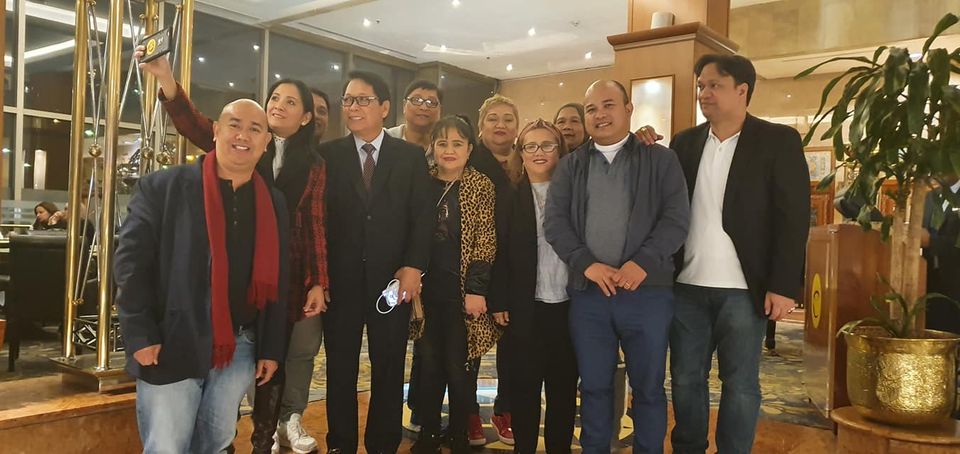
2. Have any personal experiences helped you become a good leader?
Growing up, you will learn many things, from childhood to manhood, family, school, and workplace; these factors significantly influenced my leadership. Grow in an environment that obliges you to do the right thing always was one of the best experiences that guided me to become a good leader.
Leadership often involves tough decisions, and for Diong, one of the most challenging moments came when he had to make a decision that impacted the lives of many people.
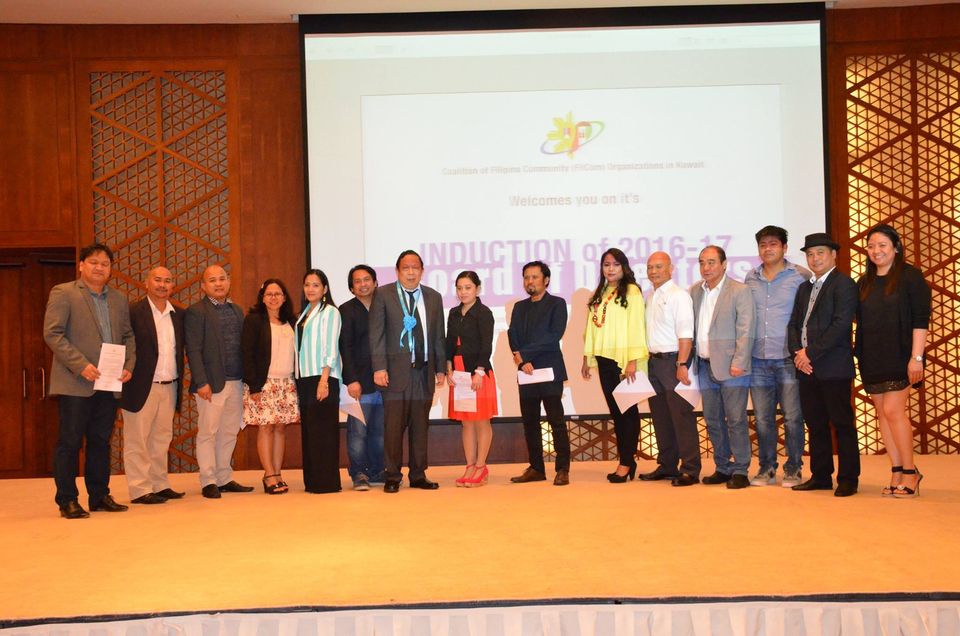
3. What steps do you take to ensure that projects are completed on time, on budget, and to the proper standard?
Lay down the plan to your fellow leaders/officers, make some brainstorming and oversight projections, and do some cost evaluation. Then work it out, and delegate the task with proper coordination. Goal settings and timeframes will help in the completion of the planned project.
Diong’s leadership journey has been shaped by his personal experiences, from childhood to adulthood. Growing up in an environment where doing the right thing was encouraged, he learned important lessons about integrity, responsibility, and the importance of community. These values have significantly influenced his leadership approach.
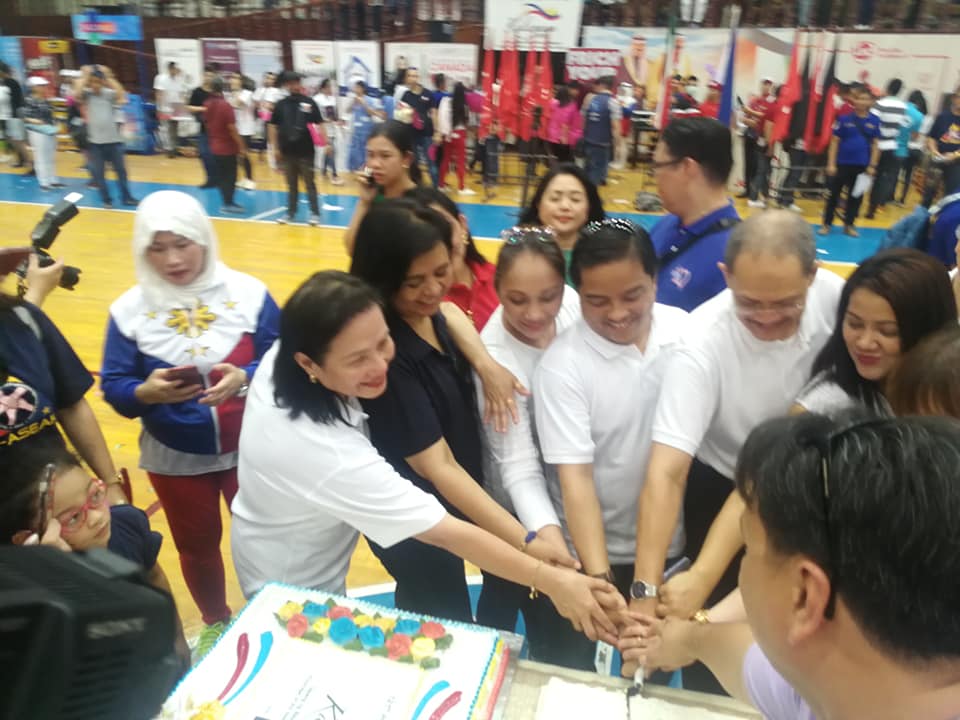
4. How would you describe your leadership style? How would your colleagues describe it?
I’ve been practicing consultative/participative leadership, involving colleagues in decision-making, and respecting their ideas and suggestions. With this kind of leadership, colleagues find it very effective, and feeling of being involvement.
Mr. Diong describes his leadership style as consultative and participative. He believes that the best way to lead is by involving others in decision-making and respecting their ideas and opinions.
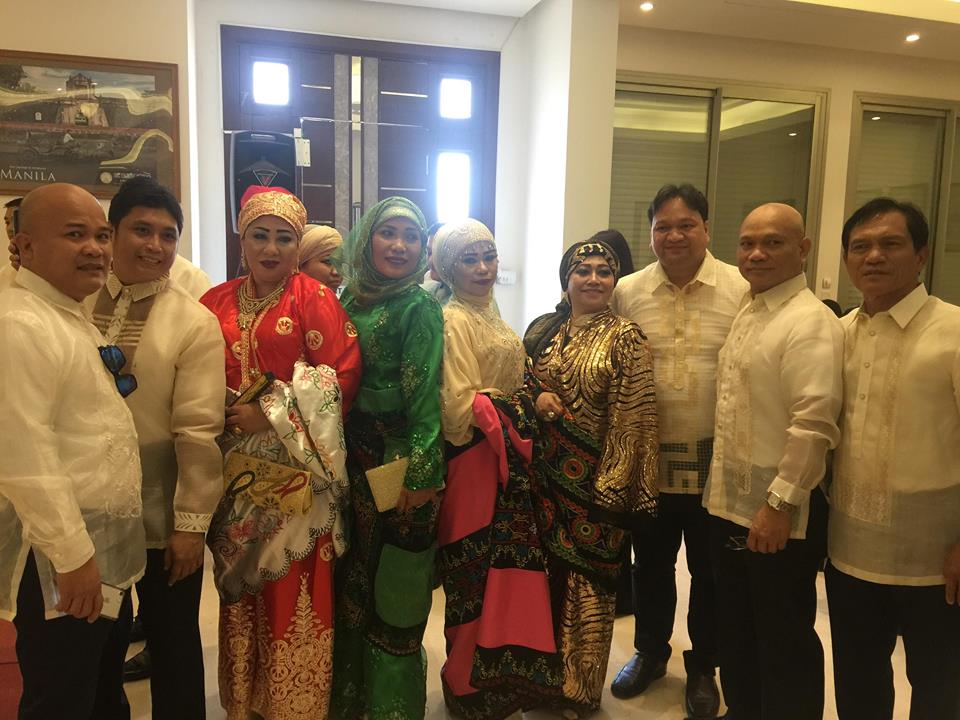
5. Can you tell me about a time when you faced a leadership challenge? What did you do to overcome it?
These issues are always part of leadership; I have faced them many times, not to mention a particular project. As long as everything was done in good faith, documented, and agreed upon by the majority, you don’t have to worry about it. To overcome it, don’t be too emotional and affected, but instead present the solution and give what they are asking.
As a leader, Diong has faced many challenges, but he has always approached them with a calm and pragmatic mindset. One such challenge involved managing a difficult situation within his organization.
6. Have you ever taken on a leadership role voluntarily? If so, can you tell me about it?
Being a community leader here in Kuwait is purely voluntary; it’s a passion that runs in our veins. The main objective is no other than helping those Kababayans in need, acting as a bridge to a Government agency by concerned OFWs, help and assist. Support and disseminate government programs to fellow OFWs.
Leadership, for Diong, is not about seeking personal glory or recognition. His leadership roles, particularly within the Filipino community in Kuwait, have always been voluntary, driven by a passion for helping others. He sees leadership as an opportunity to serve and make a positive impact.
7. Tell me about your approach to delegation.
To assign responsibility and authority to someone else in order to complete the task with close coordination, the overall head remains the main responsible for its success. Delegation ofauthority is extremely important to any organization as it empowers colleagues.
Delegation is another key component of Diong’s leadership approach. He believes in empowering others by giving them the responsibility and authority to carry out tasks. However, he also emphasizes the importance of maintaining coordination and communication to ensure that the task is completed successfully.
8. Can you describe a time when you lead by example?
Once you are a leader, you have to mentor your colleagues or members, you played a vital role in your group therefore you spread good deeds. In an event or program, you must lead your team in order to achieve goals. Do the task first, and sure they will follow.
For Diong, one of the most important aspects of leadership is leading by example. He believes that a leader should always set the standard for behavior and performance.
9. How were you able to help the other person achieve success?
Uplifting their fighting spirit, inspiring and encouraging them, and guiding and assisting in their assigned task is the best thing that a leader can help to achieve their endeavor.
Perhaps the most rewarding aspect of leadership, according to Diong, is helping others achieve their full potential.
10. If an organization is struggling to stay motivated, what steps would you take to boost engagement?
Keep the communications open, create activity, and discover some factors why they are demotivated. Take their commitments, as they are part of the group.
Reflecting on his own leadership journey, Diong offers valuable advice to aspiring leaders.
11. When a member of your organization presents you with an idea, how do you respond?
Respect each member’s idea, take it positively and appreciate it, present their idea to the body and survey their consensus. Let them feel that they are part of the team.
As leadership continues to evolve, Diong believes that the key to being an effective leader lies in the ability to adapt and grow.
12. Are there any leaders that inspire you?
There are so many political, religious, or corporate leaders that inspired me a lot, not to mention their names, but for me, tremendous support and participation of a group member are more than enough to inspire me as a leader.
13. How do you respond to constructive criticism?
I’ll take it positively! After all, it helps innovate organizational standards and promotes checks and balances. Constructive criticism means the wisdom of concern from colleagues.
14. What approach do you use when you need to deliver constructive criticism?
Make it simple but well-versed, appreciate prior their notions, but emphasize that your new ideas might help accomplish the common goals.
15. If your project became unexpectedly shorthanded, what would you do to ensure it stayed on target?
Be prepared and ready because some consequences might come out. Stay focused, Introduce some possible alternatives. Always prepare a plan B.
16. What’s the most rewarding part of leading people?
The greatest part of being a leader is helping the people you lead achieve more than they ever dreamed possible. Nothing is as rewarding as chaperoning someone through the process of self-discovery, setting audacious goals, achieving personal accountability, and learning the power of persistence. It’s rewarding when the people you led succeed
17. What’s the biggest mistake you see leaders make and how can they avoid it or recover from it?
Too much confidence, and failing to provide feedback is the most common mistake that leaders make. Be more aware of the next projects, and study all consequences.
18. If you could go back in time, what piece of leadership advice that you know now would you give to yourself when you had your first leadership role?
As we grow older, our leadership styles and practices are also developed, but if I could go back in time, I simply tell myself to be more aware, vigilant, and most of all knowledgeable. Do not enter into a situation directly which are unfamiliar, ask the expert.
19. What are the top three skills you think a leader needs to have and what’s the best way to build them?
In order to become an efficient Leader, He/She must be good at DecisionMaking, effective leaders are those who can make decisions quickly with the information they have. Strong communication skills must be possessed by a leader, he/she has the ability to understand and interpret the situation, or even a simple message that hiscolleagues want to express. A leader must be Resourceful, this is very important especially in a community where leadership belongs, from information to solutions that you need to provide to the concerned group or individuals.
20. What’s your view on what makes for effective leadership?
Committed and passionate leaders are effective leaders, the ability to delegate tasks to colleagues is helpful in an organization, and efficient leaders are honest with integrity.
21. How important is it to have a leadership philosophy and how can a leader best put that philosophy into practice?
A leadership philosophy is fundamentally a belief system that guides leaders’ decision-making. It consists of your core principles, perspectives, and values. When you define what they are, and use them to shape a leadership philosophy statement, your behaviors and decisions will remain consistent.
22. What leadership skills do you find most useful?
A leader’s strong communications skill is more significant in the organization. Leaders are messengers of goodwill.
23. As a leader, how would you persuade people to do what you want?
First, let them understand the importance and benefits of the assigned task as they belong in the same organization, after all, what I want is for their own good also. Appreciate their efforts, recognize their inputs, and show empathy.
24. Describe your decision-making process as a leader?
There are some steps or guidelines that you have to follow in making decisions, you have to gather relevant information, find the best alternatives, weigh the evidence and take action. You may review your decision and its possible consequences.
25. Name some situations in which a leader may fail.
A Leader may fail when confidence becomes an ego, too slow to learn the organization’s standard, lower level of patience. You have to take note that organizations always expect a high level of performance from their leaders. There are some instances that our event was not successful as expected because of a lack of proper coordination.
Mr. Oliver Tupaz Diong is the Chairman of the Coalition of Filipino Community Organization in Kuwait and President of Ilonggo in Kuwait.
In conclusion, the key to being a great leader is to serve and inspire. Through his actions, values, and leadership philosophy, Mr. Oliver Tupaz Diong exemplifies the qualities of a true leader—one who uplifts others, leads with integrity, and creates a lasting impact on the community. As he continues his leadership journey, Diong remains a beacon of inspiration for all those who strive to lead with purpose, passion, and a commitment to making the world a better place.
MABUHAY to all the great leaders out there—those who serve, inspire, and make a difference in the lives of others.
If you like this article please share and love my page DIARYNIGRACIA PAGE. Questions, suggestions, send me at diarynigracia@gmail.com
You may also follow my Instagram account featuring microliterature #microlit. For more of my artworks, visit DIARYNIGRACIA INSTAGRAM
MUST READ AND SHARE!
For a Great Overseas Filipino Worker (OFW) Leader – A Eulogy for Sir Oliver Tupaz Diong
Surprising Facts About Overseas Filipino Workers (OFWs) in Kuwait
The Two Very Surprising Reasons Why OFWs Want to Work in Kuwait
Rep. Ron Salo’s Remarkable Trip to Kuwait
DISCLAIMER
Please note:
The information presented in this blog (Leadership Interview: 25 Insights on How to Be a Great Leader—Serve and Inspire by Oliver Tupaz Diong) regarding public pages is derived from publicly accessible sources. While I strive for accuracy, information may change over time, contain errors, or be incomplete. The analysis, opinions, interpretations, blog posts, and advertorials expressed on this blog are DNG writings with attributions and do not intend to cause copyright infringement. This blog is intended for informational and discussion purposes only. Continuing Advocacy Blog. You may check directly with the official sources of the relevant public pages mentioned in the blog posts.
📷 MEDIA CONTENT DISCLAIMER All rights and credits reserved to the respective owner(s). If you are the main copyright owner rather than the one mentioned here on this content, contact us to claim credit or remove content.


Peace and love to you.